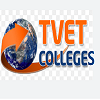NSFAS Qualifications
NSFAS Qualifications: What does NSFAS stand for?
For South African students to be able to attend higher education, the National Student Financial Aid Scheme (NSFAS) is essential. For students pursuing financial aid to fulfil their academic goals, it is essential that they comprehend the prerequisites and eligibility requirements for NSFAS. To help prospective applicants, this article attempts to provide an overview of the necessary documents, guidelines, and pertinent information about NSFAS qualifications.
NSFAS Qualifications and Eligibility Criteria: What does NSFAS stand for?
- Citizenship and Residency:
To qualify for NSFAS funding, applicants must be South African citizens. Permanent residents and refugees may also be eligible but are required to meet specific criteria. Applicants must provide valid identification and residency documents.
- Financial Need:
NSFAS primarily caters to students with significant financial need. Household income is a crucial determinant in the application process. Applicants must come from families with a combined income falling within the NSFAS threshold to be considered for funding.
- Academic Criteria:
While the academic requirements may vary, NSFAS typically requires applicants to meet minimum academic standards. These standards ensure that candidates have the potential to succeed academically. A good academic record is an advantage but not the sole determinant of eligibility.
- Enrollment at Accredited Institutions:
Applicants must be enrolled or planning to enrol at a public university or TVET college accredited by the South African government. The chosen institution and the course being pursued must be recognized by NSFAS.
- Satisfactory Academic Progress (SAP):
Continued NSFAS funding is contingent on maintaining satisfactory academic progress. Recipients need to pass their courses within a reasonable timeframe. Failure to do so may result in a suspension or termination of funding.
What does the bursary cover?
Amounts indicated for accommodation, living allowance, transport and learning materials need to be aligned with the approved latest DHET guidelines.
UNIVERSITY
- Accommodation: As per the actual costs charged by the university (costs for private accommodation must not exceed costs for university residence)
- Transport (up to 40 km from the institution) R7 500 per annum
- Living allowance R15, 000 per annum
- Book allowances R5200 per annum
- Incidental/personal care allowance of R2900 per annum for students in catered residences
TVET
- Accommodation in an urban area is R24,000 per annum
- Accommodation in a peri-urban area is R18,900 per annum
- Accommodation in a rural area is R15,750 per annum
- Transport (up to 40 km from the institution) R7,350 per annum
- Transport R7000 per annum
- Incidental/personal care allowance R2900 per annum
Application Process and Guidelines
- Application Period:
NSFAS typically opens applications during a specified period each year. Prospective applicants should be vigilant and submit their applications within the stipulated timeframe. Late applications might not be considered.
- Required Documentation:
Applicants must provide accurate and complete information. Necessary documents may include identification, household income statements, academic transcripts, and proof of enrollment in an accredited institution.
- Online Application:
NSFAS applications are primarily done online through the NSFAS website or a designated application portal. It’s crucial to fill in the application correctly and truthfully to enhance the chances of successful funding.
- Application Review and Notification:
Once applications are submitted, NSFAS reviews the applications. Successful applicants are then notified via the contact information provided in their application. It’s important to monitor emails, messages, or the applicant portal for updates.
How to Apply for NSFAS Online
To Apply Online for NSFAS 2024, please follow the step-by-step below:
- Open Chrome browser on your computer or smartphone
- Enter NSFAS website: www.nsfas.org.za apply for 2024
- Click on the “myNSFAS” tab at the top right menu of the page
- Login with your ID number and password to start your application
- If you don’t have an ID number, create a “myNSFAS account”
- You will be generated a Student ID Number that will help you to apply
- Click on the ‘APPLY’ tab and complete the sections on the screen
- Upload the required supporting documents where applicable
- Then, click on the “Submit” button to submit your application for evaluation
Students in South Africa who might not otherwise be able to afford higher education can receive financial aid thanks in large part to the NSFAS. Prospective applicants seeking funding must be aware of the requirements, eligibility requirements, and application guidelines. Students can improve their chances of getting the much-needed financial support from NSFAS by fulfilling the requirements and carefully completing the application process. Always keep in mind that the NSFAS application process depends heavily on maintaining knowledge, adhering to deadlines, and providing correct information. Aspiring learners ought to seize this chance to delve deeper into their studies and create more promising futures. APPLY NOW
RELATED LINKS:
- Who Gets NSFAS Allowance
- TVET Colleges Qualifications 2024-2025
- When Do NSFAS Applications Open For 2024-2025
Contact NSFAS
For general, student and NSFAS Wallet enquiries
For all other queries regarding students:
Tel No.: 08000 67327
Email: info@nsfas.org.za
Physical Address
The Halyard, 4 Christiaan Barnard St,
Cape Town City Centre, Cape Town, 8001
